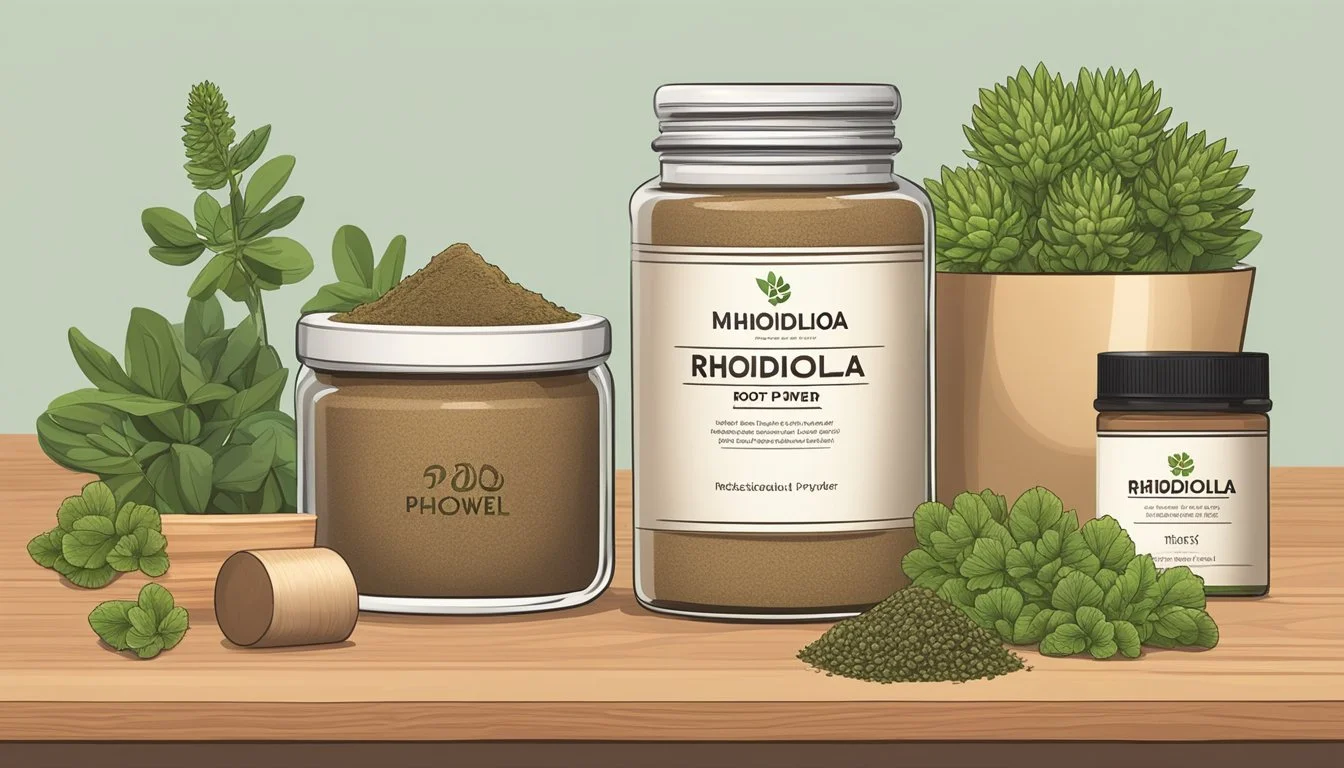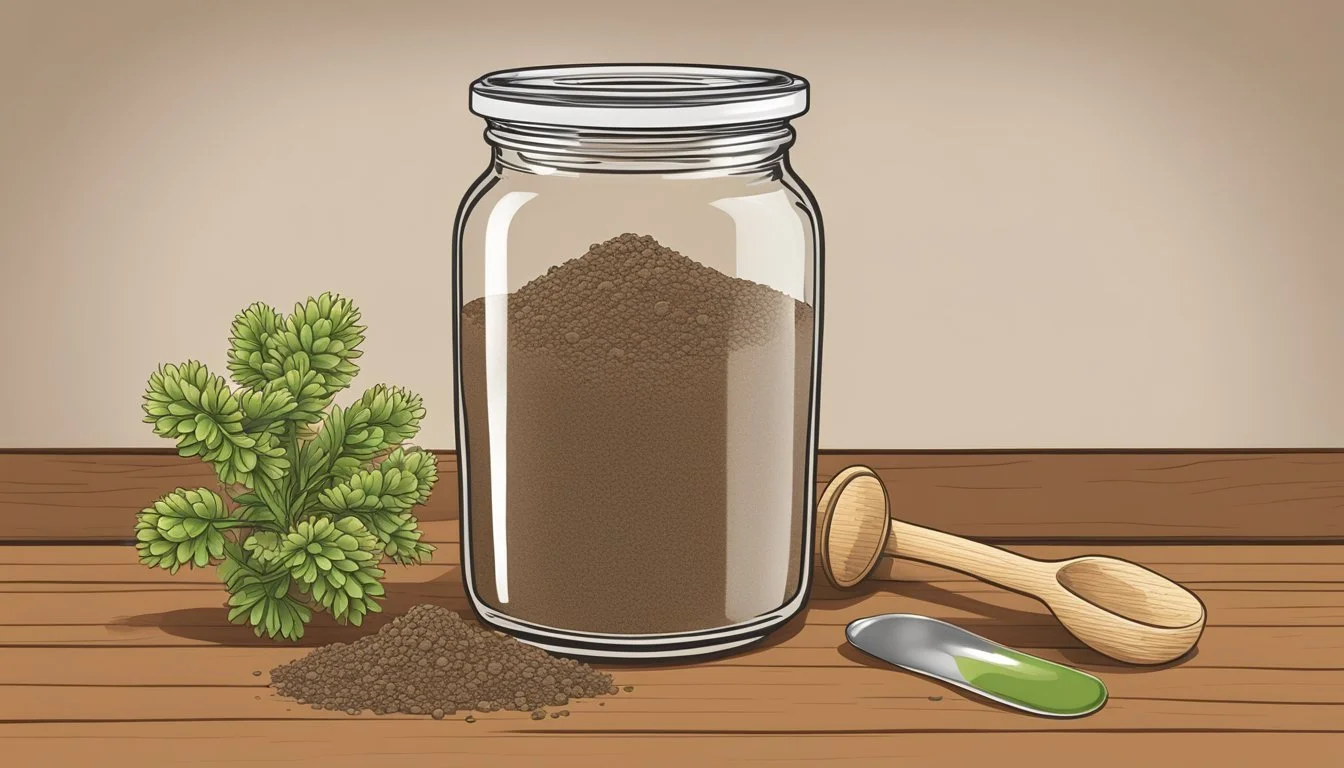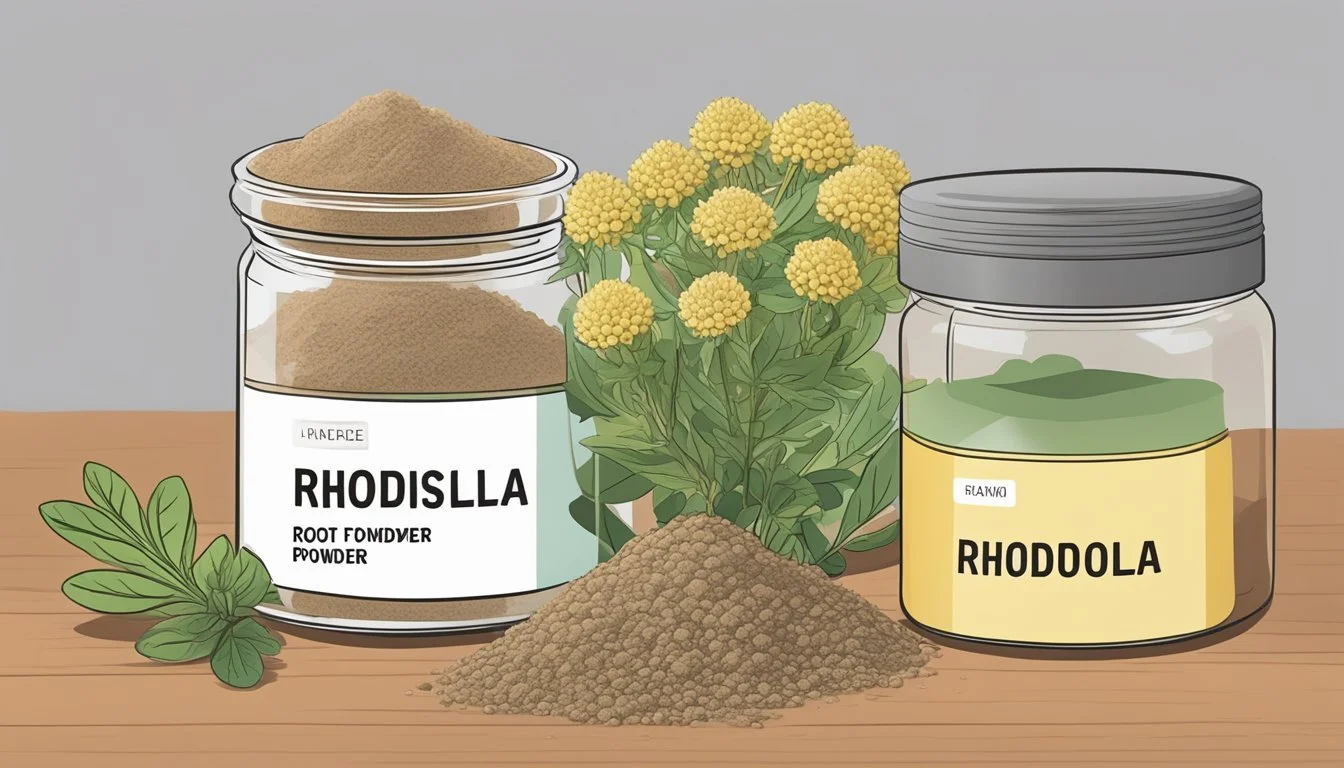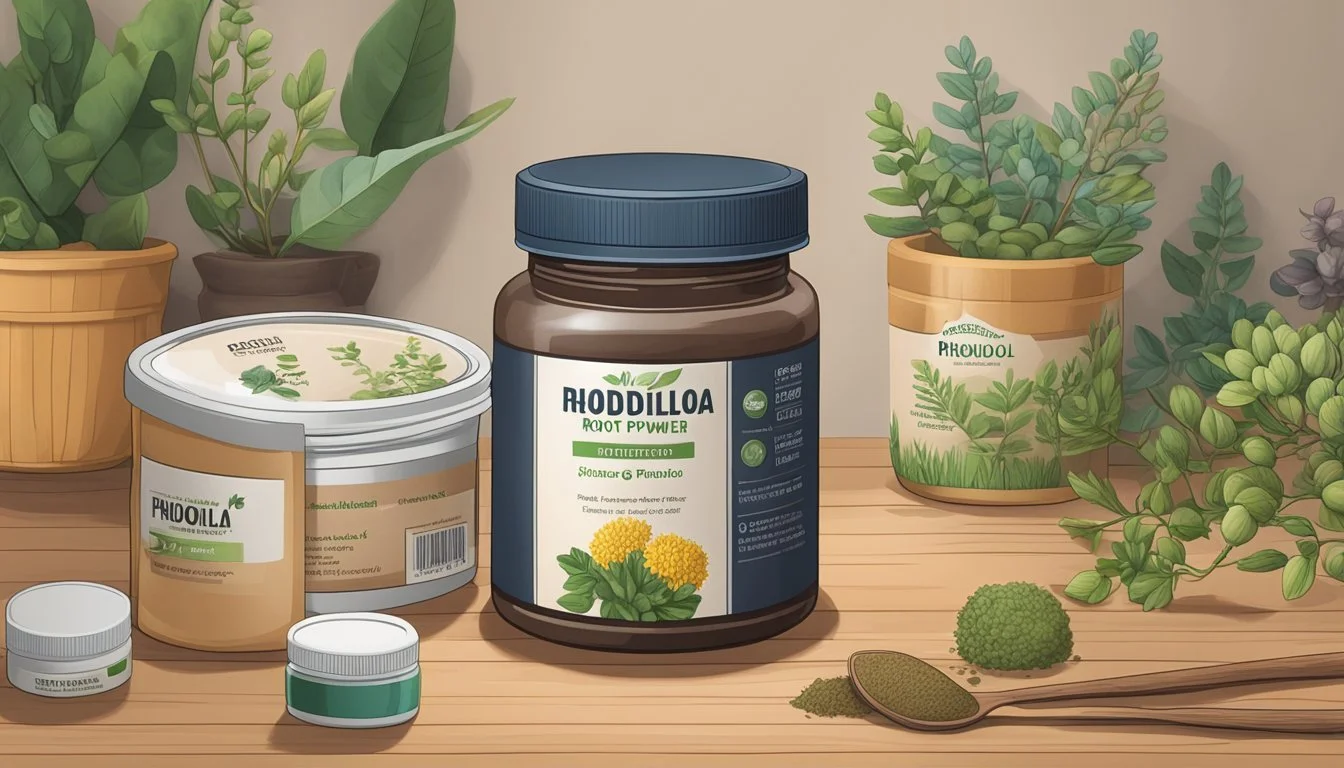Rhodiola Root Powder Substitutes
Rhodiola Root Powder Substitutes
When seeking effective Rhodiola root powder substitutes, understanding the benefits each alternative provides is crucial. Rhodiola Rosea, renowned for its adaptogenic properties, helps combat fatigue and stress, making it a popular supplement in traditional medicine. Among the best substitutes for Rhodiola Rosea are other adaptogenic herbs like Ashwagandha and Maca, which also offer stress relief and improved energy levels.
Ashwagandha, often utilized for its ability to enhance testosterone and improve mental clarity, stands out as a potent substitute. Maca, another powerful adaptogen, is known for boosting stamina and fighting stress naturally. Additionally, herbs such as Licorice Root, Ginseng, and Reishi contribute to stress reduction and overall well-being, making them viable alternatives to Rhodiola Rosea in supplement form.
Integrating these substitutes into one's routine can offer a holistic approach to managing stress and improving energy. Each of these herbs brings unique benefits, allowing for tailored solutions to individual health needs and preferences, while maintaining the principles of traditional medicine.
Understanding Rhodiola Root Powder
Rhodiola root powder, derived from the Rhodiola rosea plant, is often used for its potential to enhance mental and physical performance. It contains active compounds that help the body manage stress and fatigue effectively.
Profile of Rhodiola Rosea
Rhodiola rosea, commonly known as arctic root, golden root, rose root, and king's crown, is an adaptogen found in cold regions. It thrives in the Arctic and mountainous parts of Europe and Asia. This hardy plant has been used in traditional medicine for centuries to combat fatigue, poor concentration, and decreased memory.
Its efficacy is linked to its ability to enhance the body's resilience to stress, making it a popular herbal supplement. In Russia and parts of Scandinavia, rhodiola is a well-established remedy for boosting endurance and reducing fatigue.
Benefits and Uses
Rhodiola root powder is often utilized to combat stress and fatigue due to its adaptogenic properties. It helps in reducing anxiety and depression by modulating neurotransmitters such as serotonin and dopamine. Additionally, it is beneficial for improving mental performance, endurance, and overall energy levels.
Many people use rhodiola supplements to improve exercise performance, as it can boost strength and resistance. In clinical settings, it’s also been used to support cognitive function under stress, enhancing focus and alertness. Its antioxidant properties further protect cells from oxidative damage.
Active Compounds and Effects
The primary active compounds in rhodiola root powder are salidroside and rosavin. These compounds contribute to its adaptogenic, anti-fatigue, and anti-anxiety effects. Salidroside has antioxidant qualities, protecting the body from oxidative stress, while rosavin plays a role in regulating cortisol levels.
By balancing cortisol, rhodiola helps manage the body's response to stress. It also influences neurotransmitters like norepinephrine, serotonin, and dopamine, which regulate mood and mental clarity. The combined effects of these compounds enable rhodiola to support both physical stamina and mental well-being effectively.
Health Considerations
When considering substitutes for Rhodiola root powder, it is crucial to understand potential side effects, interactions with other medications, and advisories for special populations.
Potential Side Effects
Some individuals may experience side effects with adaptogenic herbs like Rhodiola or its substitutes. Common side effects include dizziness, dry mouth, headache, nausea, stomach upset, and difficulty sleeping.
Though generally mild, these effects can vary in intensity among users. An allergic reaction is rare, but can occur, manifesting as rash, itching, swelling, or breathing difficulties. Monitoring and consulting with a doctor or healthcare professional is advised if any adverse symptoms appear.
Interactions and Contraindications
Rhodiola and its substitutes may interact with other medications. For instance, combining these herbs with antidepressants or monoamine oxidase inhibitors (MAOIs) can increase the risk of side effects like mania in patients with bipolar disorder.
It's essential to avoid using these adaptogens concurrently with other treatments that have similar effects unless approved by a healthcare professional. Other interactions may occur with medications that affect the central nervous system, so always consult a healthcare provider before combining them with any new treatment.
Advisory for Special Populations
Certain populations need to exercise additional caution. Pregnant and breastfeeding (nursing) women should be especially cautious, as there is insufficient data regarding the safety of Rhodiola and its substitutes for them.
Children should also use these adaptogens only under strict medical supervision to avoid unanticipated side effects. People with underlying health conditions should always seek advice from a healthcare professional to ensure that their use of adaptogenic herbs does not exacerbate their condition or interact with their treatments.
Alternative Supplements for Rhodiola
When searching for substitutes for Rhodiola root powder, there are a few notable herbal supplements that are commonly recommended based on their adaptogenic properties and ability to support the body in managing stress and fatigue.
Ashwagandha
Ashwagandha, a renowned adaptogen in traditional medicine, is frequently suggested as an alternative to Rhodiola. Known for its potential to balance cortisol levels, Ashwagandha can help reduce stress and anxiety.
It may also support healthy testosterone levels and improve fertility by increasing sperm count and quality.
Ashwagandha's ability to enhance memory and focus makes it a versatile option for those looking to support both mental and physical health. Its anti-inflammatory properties can also aid in overall wellness.
Ginseng
Ginseng, particularly Korean Red Ginseng, is another excellent replacement for Rhodiola. Often referred to as an energy booster, Ginseng may enhance physical performance and cognitive function.
It's widely used to combat mental and physical fatigue, promoting better concentration and stamina.
Ginseng also has potential benefits for the immune system and may help in reducing oxidative stress. This herb has a long history in traditional medicine for its revitalizing properties.
Other Adaptogenic Substitutes
Beyond Ashwagandha and Ginseng, other adaptogenic herbs serve as viable Rhodiola substitutes. Holy Basil (Tulsi) is valued for its ability to alleviate stress and promote relaxation.
Maca Root is known for improving energy, endurance, and libido.
Additionally, Eleuthero (Siberian Ginseng) is used to enhance resilience to stress and improve mental and physical performance. Schisandra has properties that help with fatigue and enhances endurance. These alternatives are rooted in traditional medicine and offer a range of benefits for managing stress and improving overall health.
Practical Information
When choosing a substitute for Rhodiola root powder, it's essential to understand the proper dosage and administration and recognize how to select high-quality supplements. This ensures safety and effectiveness in usage.
Dosage and Administration
The appropriate dosage of Rhodiola substitutes can vary based on the specific form of the supplement. For example, a typical dosage for capsules or tablets is often between 200-600 mg per day.
When using a liquid extract or tincture, the suggested dose is usually around 1-2 ml per day. Powdered forms of substitutes can be added to teas or smoothies, with a common dose being 1-2 grams per day.
It's crucial to follow the dosages recommended by healthcare providers and never exceed the suggested amounts. For safety, always start with the lowest recommended dose to monitor the body’s response.
Selecting Quality Supplements
Selecting high-quality Rhodiola substitutes requires attention to several factors. First, look for supplements that have third-party certifications to ensure purity and quality.
The ingredients list should be thoroughly checked for additives and fillers. Opt for products that clearly state the concentration of active compounds like salidrosides. It's also beneficial to choose supplements that are manufactured in facilities compliant with the FDA's Good Manufacturing Practices (GMP).
Consumer reviews and clinical trial data can offer insights into a product's effectiveness. Prioritize brands with a good reputation and clear labeling of ingredient sources.
Taking these steps helps to ensure the efficacy and safety of any chosen Rhodiola root powder substitute.
Broader Context
Rhodiola root powder has been used for centuries in traditional medicine and is supported by modern research. It has applications in mental and physical health, with studies backing its therapeutic effects.
Role in Traditional and Modern Medicine
Rhodiola rosea, also known as golden root or Arctic root, has a long history in traditional medicine. It has been employed in Europe and Asia to combat fatigue and improve mental performance. In Russia, Rhodiola extract is officially recognized as an anti-fatigue drug and adaptogen, which helps the body resist various stressors.
In modern medicine, this herb's role has expanded. Over-the-counter (OTC) supplements are commonly available in the United States. These supplements are often used to reduce mental and physical exhaustion. Rhodiola's adaptogenic properties make it particularly valuable in today's fast-paced lifestyle where stress management is crucial.
Research and Studies
The efficacy of Rhodiola root powder has been substantiated by various clinical trials and studies. The active compounds in Rhodiola, such as rosavins and salidrosides, have been shown to enhance mental performance and alleviate symptoms of stress. Clinical trials indicate that Rhodiola can improve exercise performance by reducing fatigue and boosting stamina.
One significant study highlighted Rhodiola's potential in managing depression. Participants taking Rhodiola supplements experienced notable improvements in mood and reduction of mental fatigue. These findings reinforce the traditional uses of Rhodiola and validate its benefits observed in historical practices.







